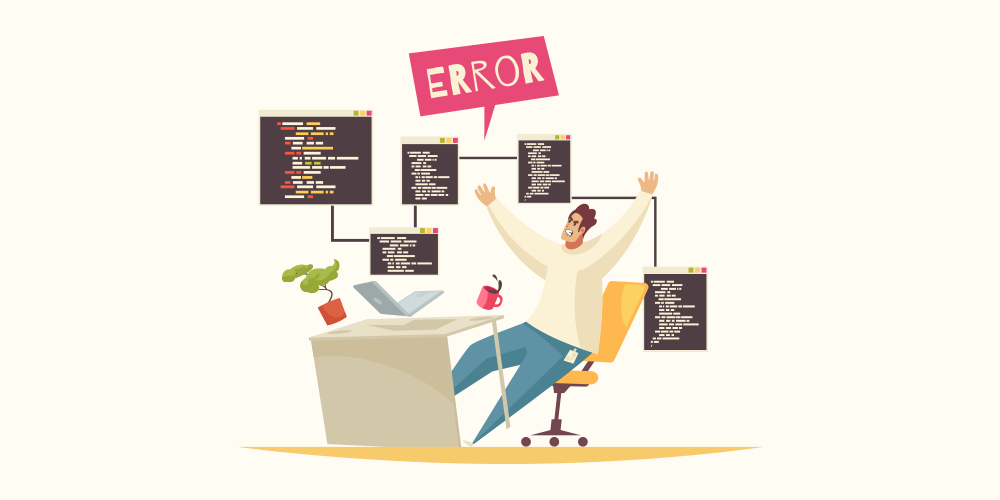
Introduction:
Effective error handling is a critical aspect of coding that often separates novice developers from seasoned professionals. In this article, we’ll delve into invaluable error handling tips that can elevate your coding skills and contribute to the creation of robust and resilient software.
Understanding the Significance of Error Handling:
Error handling is more than just catching bugs; it’s about creating a safety net for your code. A robust error-handling strategy anticipates potential issues, ensures graceful handling of unexpected situations, and provides meaningful feedback to users and developers.
Early Detection through Comprehensive Testing:
One of the first lines of defense in error handling is comprehensive testing. By implementing thorough unit tests, integration tests, and system tests, you can identify and address potential issues early in the development process. Automated testing tools and frameworks can streamline this crucial aspect of error prevention.
Differentiating Between Expected and Unexpected Errors:
Not all errors are created equal. Distinguishing between expected errors (those you anticipate and can plan for) and unexpected errors (those unforeseen issues that may arise) allows for a more strategic and targeted approach to error handling. Tailor your response based on the nature of the error.
Clear and Informative Error Messages:
When errors occur, users and developers alike benefit from clear and informative error messages. Provide concise and actionable information about what went wrong and, if possible, suggest steps for resolution. Well-crafted error messages facilitate quicker issue resolution and enhance the overall user experience.
Logging for Debugging and Analysis:
Incorporate logging mechanisms into your code to record details about errors. Logging not only aids in debugging during the development phase but also provides valuable insights into the performance and stability of the application in a production environment. Log entries can be instrumental in identifying patterns and trends.
Graceful Degradation and Failover Mechanisms:
Design your system to gracefully degrade in the face of errors. Implement failover mechanisms and alternative paths of execution to ensure that, even in the presence of errors, the system can continue to function at a reduced capacity. This approach enhances the overall reliability and availability of your application.
Implementing Retry Strategies:
For transient errors, implementing retry strategies can be an effective solution. By automatically retrying the operation after a short delay, you give the system a chance to recover from temporary glitches. However, it’s crucial to set reasonable limits on the number of retries to avoid potential performance issues.
Regularly Reviewing and Updating Error Handling Code:
As your codebase evolves, so should your error handling strategies. Regularly review and update your error handling code to align with changes in requirements, code enhancements, and emerging best practices. An outdated error handling mechanism may not effectively address new challenges or opportunities.
Security Considerations in Error Handling:
Error messages should be crafted with security in mind. Avoid revealing sensitive information in error messages that could be exploited by malicious actors. Instead, provide generalized error messages to users while logging detailed information for developers in a secure manner.
Documentation and Communication:
Document your error handling strategies comprehensively. Include information about expected errors, error codes, and recovery procedures in your documentation. Communicate effectively within your development team about the error handling mechanisms in place, ensuring everyone is aligned on best practices.
Conclusion: Elevating Your Coding Practices:
Effective error handling is a hallmark of professional coding practices. By implementing these error handling tips, you not only fortify your code against unexpected issues but also contribute to the overall reliability and user satisfaction of your software.
To explore more about Error Handling Tips for Coding, visit boydmillerwebdesign.com. Elevate your error handling strategies and ensure your code stands resilient in the face of challenges.



![Average Renovation Costs in [Your Location] Average Renovation Costs in [Your Location]](https://images.unsplash.com/photo-1517103278237-421a1cb020fa?fm=jpg&q=60&w=3000&ixlib=rb-4.0.3&ixid=M3wxMjA3fDB8MHxzZWFyY2h8M3x8aG93JTIwbXVjaCUyMHJlbm92YXRpb24lMjBjb3N0fGVufDB8MHwwfHx8Mg%3D%3D)






